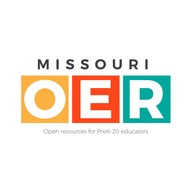(View Complete Item Description)
In this lesson, students will investigate the miraculous process of air and water combining with seeds, soil, and sunlight to create nearly all the food we eat. Extension activities can take this a step further by encouraging kids to track growth rates of different seeds in an observation journal. Includes place-based connection, activity instructions, extension activities, songs, and vobaulary list.
NGSS: Partially meets 2-LS2-1, 1-LS1-1
Common Core: W.2.7, W.2.8, and MD.K, MD.1, MD.2.1, MD.3.3, MD.4.4, MD.5 with extension activities.
Time: 45 minutes
Materials: "One Bean" book or other book about plant germination, clear plastic cups, paper cups, paper towels, seeds, and water.
Material Type:
Activity/Lab,
Lesson Plan
Author:
Columbia Gorge STEM Hub




















